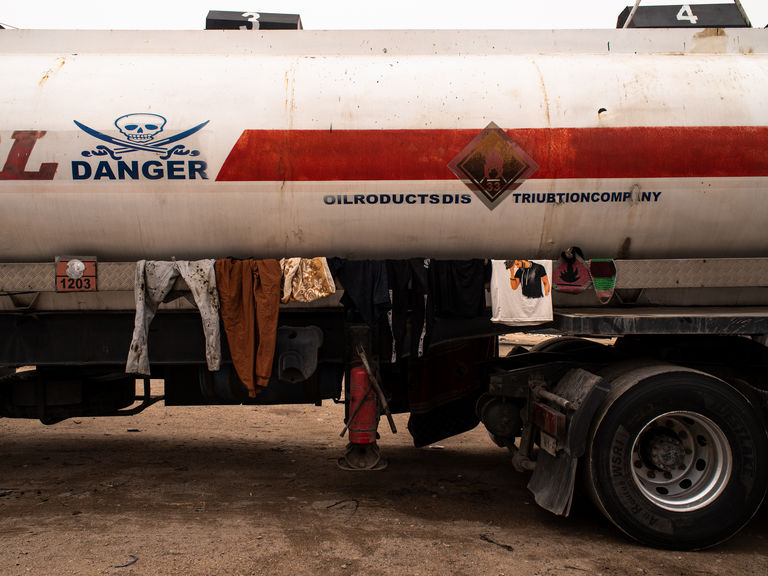Project Detail: Iraq, the Price of Oil
Contest:
Swiss Storytelling Photo Grant 9th
Brand:
LuganoPhotoDays
Author:
Daniela Sala
Project Info
Iraq, the Price of Oil
Pollution, water depletion, and greenwashing: Oil companies and the ecocide in Iraq
“Welcome to hell”, is how the residents in Zubayr - a city of one million, in Southern Iraq, next to some of the biggest oil fields in the world - greet foreigners.
Iraq is the second largest producer within the Organization of the Petroleum Exporting Countries (OPEC). Oil accounts for over 90 percent of the country’s income - with oil fields being operated by some of the biggest international oil companies.
But the deceiving promise of wealth and development the black gold carried, is long gone. In Zubayr, streets are unpaved, electricity is available only for a few hours a day. Families rely on generators but they often lack the oil to operate them.
The black gold now became a threat to the blue gold, as water is used to extract oil. Iraq has been named the fifth-most vulnerable country in the world to the climate crisis and water scarcity. In Basra, the biggest city in the area, thousands of Iraqis already struggle to access water. Entire areas in the marshes went dry, with fishermen and farmers losing their livelihood.
With the war in Ukraine, Europe started importing even more crude from Iraq. In 2022, oil and gas companies recorded unprecedented “monster profit”. Yet, in Iraq these companies fail to invest into the technology that might limit the environmental impact of extraction. They keep using the water from the rivers and keep burning the gas from the wells - a highly polluting and highly dangerous practice known as ‘flaring’.
More and more people are affected by cancer and an ecological disaster is looming over the country, where local communities are left to pay the price of irreversible environmental degradation - while international oil companies fail to be held accountable.


















